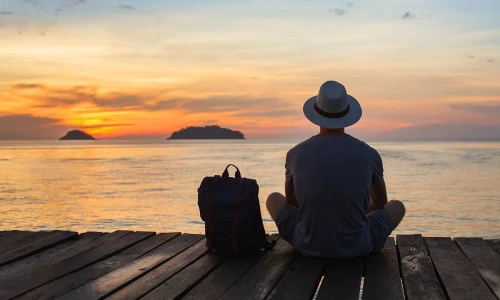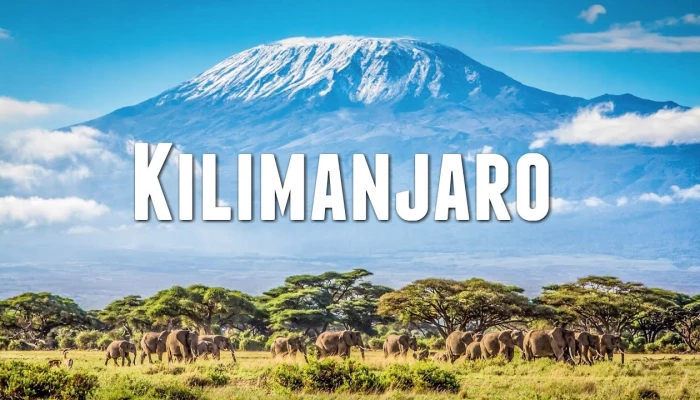Tanzania culture safaris
Related Articles
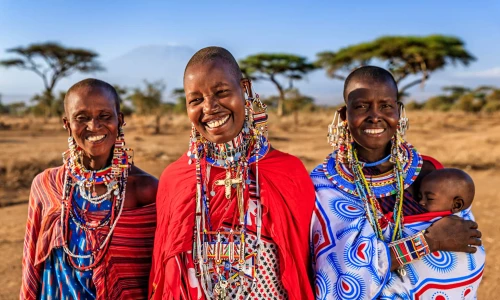
Tanzania Culture Safaris
Tanzania Culture
Tanzania has approximately 60 million inhabitants and over 120 tribes that live together peacefully. Tanzania is a safe and politically stable country, with very friendly and relaxed people.
Due to the large ethnic differences…
Tanzania Culture
Tanzania has approximately 60 million inhabitants and over 120 tribes that live together peacefully. Tanzania is a safe and politically stable country, with very friendly and relaxed people.
Due to the large ethnic differences…
Tanzania Culture
Tanzania has approximately 60 million inhabitants and over 120 tribes that live together peacefully. Tanzania is a safe and politically stable country, with very friendly and relaxed people.
Due to the large ethnic differences, the Tanzanian culture is very diverse. During your trip, it’s possible to get acquainted with these different cultures and familiarise yourself with the Tanzanians in an authentic way. Such as Maasai (Ngorongoro, Lake Natron), Sukuma (Mwanza), Chagga (Moshi, Kilimanjaro), Hadzabe (Lake Eyasi) and Hehe (Iringa). Because we’ve lived in Tanzania for years, we know the non-touristy places that are super nice to visit.
Maasai
Origin
The Maasai are Nilotic in origin. A (semi)nomadic people migrated from the Nile region to Tanzania in the 17th century in search of fresh grass for their herds. They know no borders and mainly live off herding livestock, mainly goats.
Habitat
In 1959 the Ngorongoro area was protected in order to provide the Maasai with a secure place. These proud herdsmen are no longer allowed to live in the Ngorongoro crater, but they still let their cattle graze there, despite the presence of predators.
Maasai mainly live in Northern Tanzania, especially in the Ngorongoro area and around Lake Natron.
Lifestyle
The traditional Maasai lifestyle revolves around their livestock, which is their main source of food. The measure of one’s wealth is in terms of livestock and children. Their livestock provides for almost all of the Maasai’s food needs.
Maasai live in a kraal they call ‘boma’. Around the corral is a fence of thorn branches to keep the wild animals at a distance. The huts are made of woven branches, the holes of which are filled with manure and mud. Check out or sleep in a Maasai hut yourself!
Characteristic
The Maasai are among the tallest people in Africa, due to their rich calcium diet. But they look even bigger because of their high jumps.
It’s not just random jumping. It’s called ‘Adamu’ and has a deeper meaning; on their slippers (made from car tires) the men demonstrate their strength and endurance.
Future
Their lives are becoming increasingly difficult due to increasing drought. The Maasai are one of the few peoples of Tanzania who have retained most of their traditions, lifestyle, and knowledge. Modernization, therefore, has little effect on the Maasai, but the curtailment of their grazing grounds does threaten their traditional way of life.
Tanzanian Culture is a wonderful combination of influences from over 120 tribes. Visiting one of the most culturally diverse countries on Tanzania Safari Tours helps you meet various culturally diverse groups such as the tall and graceful Maasai warriors, the artistic talents of the Makonde the Chaga farmers and traders, the ancient ways of the Hadza Bushmen, and the resourceful agricultural practices of the Wameru.
What is essential for travelers is to understand their cultural styles, traditions, and more before you start planning your visit to this amazing country.
TANZANIAN ETIQUETTES
There are some basic disciplinary upbringing standards such as keeping control of one's temper and emotions in public and more that have been taught to Tanzanian kids since childhood. Public display of affection is not liked so much and there are some very conservative rules regarding women’s clothing, speaking, and other styles. There are numerous Tanzania cultural facts that every traveler visiting the country must be aware of.
Here are some Tanzanian Culture Tips that you should follow while on your Tanzania Safari Tours:
The Right Hand First
For eating, picking up food, and greeting people, Tanzanians prefer to use their right hand. They consider it cleaner compared to the left hand which is used solely for ablutions and bathroom activities. It’s a gesture of good manners among the people.
Say No To PDAs
The more romantic Public Display of Affection such as cuddles and kisses is deeply frowned upon. You are completely free to do so in your private rooms. The Islamic culture of Tanzania has people believe that affection of any kind between a man and woman is strictly left to the privacy of a bedroom.
Don’t Breathe In That Aroma
In the Western culture taking in the aroma of a meal before tucking it in is part of the enjoyment but in Tanzania sniffing food is viewed with suspicion and a sign of distaste. It is believed in their culture that food is only smelled when there is something wrong with it, or it is thought to be rotten. Apart from this sniffing is also considered to be highly insulting to the cook.
Tanzanians Are Always In A Great Mood
Tanzanians are polite, considerate, and friendly, this is a result of their strong upbringing that helps them develop strong family ties, respect for elders, and the ability to control their anger in public is highly valued.
Ask Before You Take Snapshots
You will find some enthusiastic Tanzanians who are extremely happy when visitors take their snaps, as they show off their traditional dress and lifestyle. But it is considered a subject of privacy and it is respectful to ask people before you start clicking those snaps.
Never Knock The Aged
It is believed among many cultural groups in Tanzania that elders possess greater knowledge and questioning their opinions or not showing courtesy in their presence is one of the highest cultural offenses and must be avoided.
‘Hakuna Matata’ - You Have Heard It But Don’t Know The Meaning?
What Disney’s Lion King popularised was the famous Song of ‘Hakuna Matata’, pronounced [hɑˈkunɑ mɑˈtɑtɑ] is a Swahili language phrase from East Africa, meaning "there is no trouble" or "There are no worries". This is a Tanzanian Catchphrase and it is very essential to understand that Tanzanian people do not rush and travelers from the western part of the world have to understand that.
Learn The Art Of Storytelling From Tanzanians
Although Tanzania’s ethnic groups have very little written history, most of the stories of their ancestral heritage and glory have trickled down to generations through verbal artful storytelling, and this process has become an essential part of their culture. On your Tanzania Safari Tours, you can learn some of these stories and anecdotes that enhance your trip experience.
Rite Of Passage
There are numerous rites and laws through which many Tanzanian youths have to pass before becoming adults. These laws are so strict that boys who have not undergone circumcision are rarely considered to be men. A similar situation prevails for women where girls who have not passed through female rites of passage are often considered to be worthless.
Afrima Luxury Travel
Luxury Safari Consultant Afrima Luxury Travel is a Tanzania Expert Safari company dedicated to sharing Tanzania's beauty and wonders with the world.
Was this article helpful?
25 out of 78 found this helpfulRelated Articles
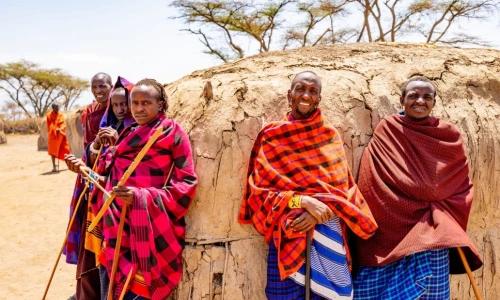
Tanzania Culture Safaris
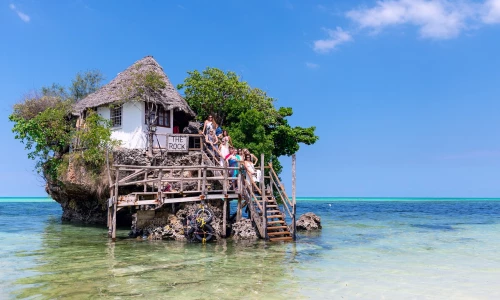
Zanzibar Beach Holidays
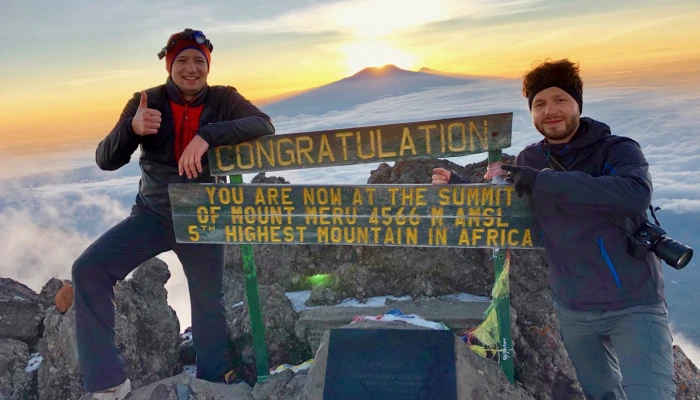
Mount Meru Tanzania
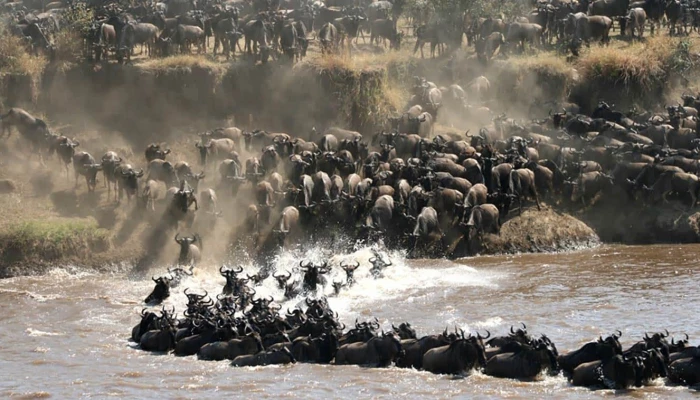
Tanzania Wildebeest Migration
